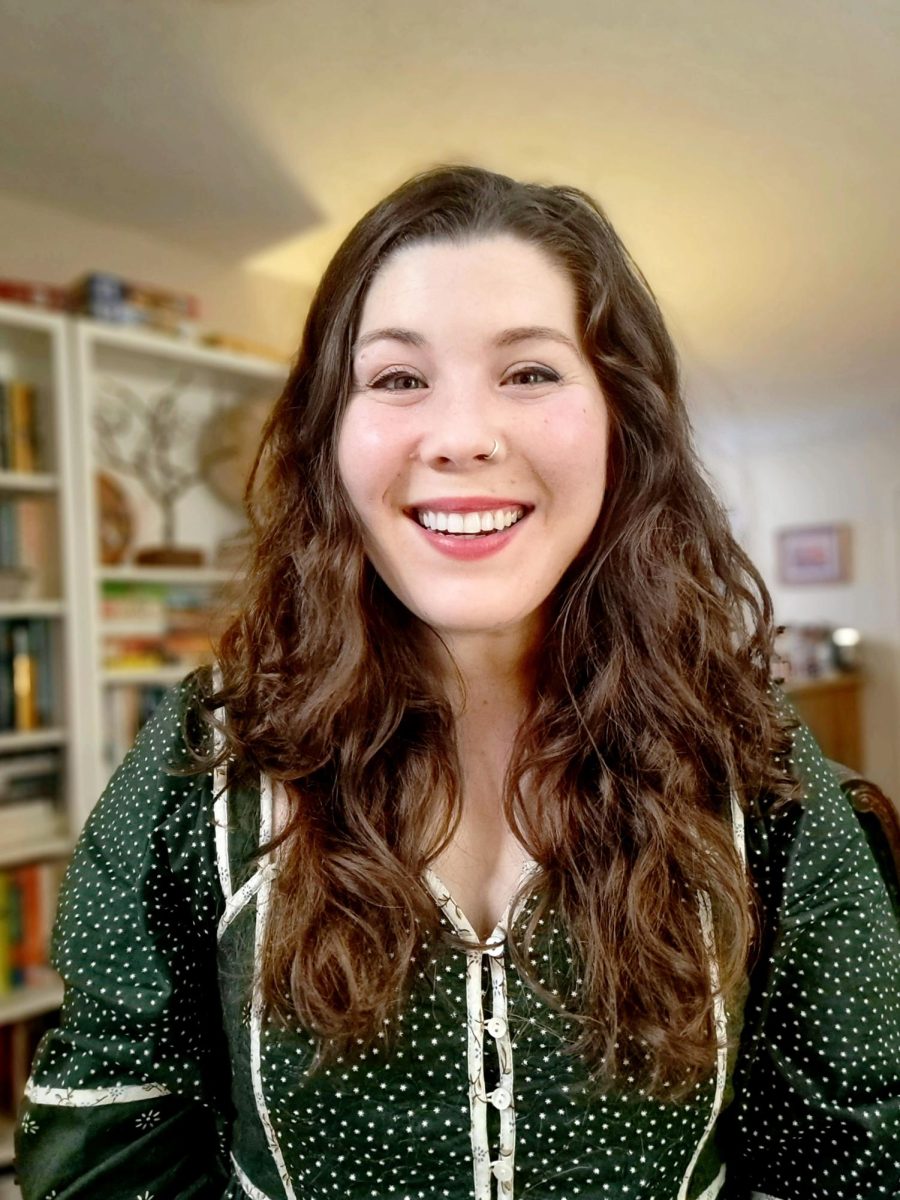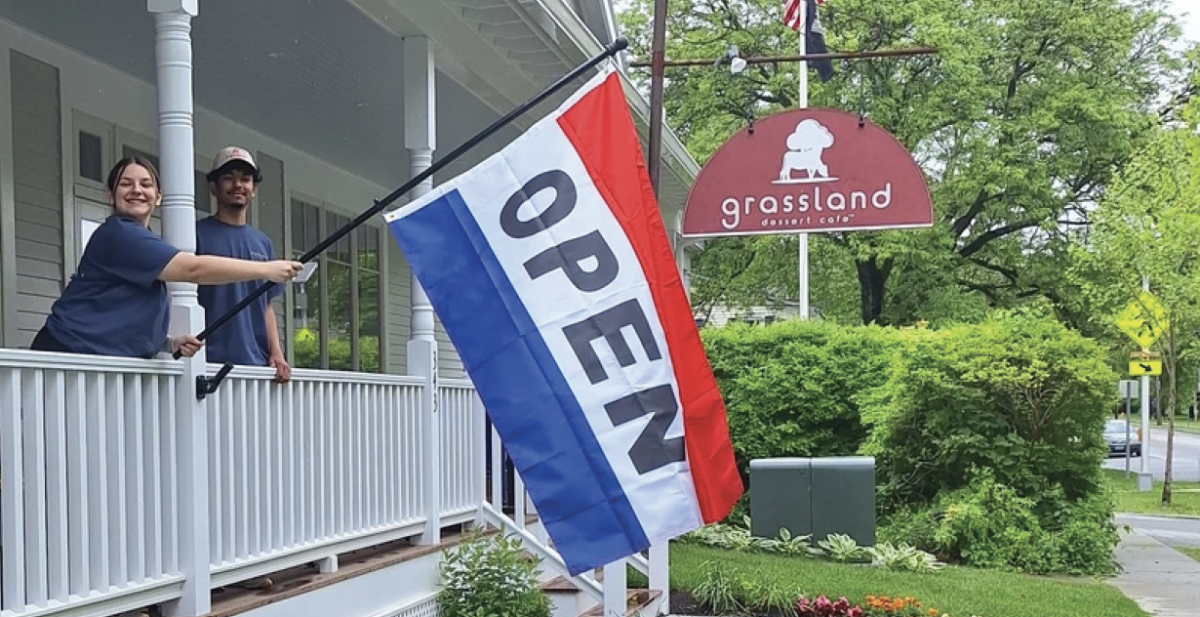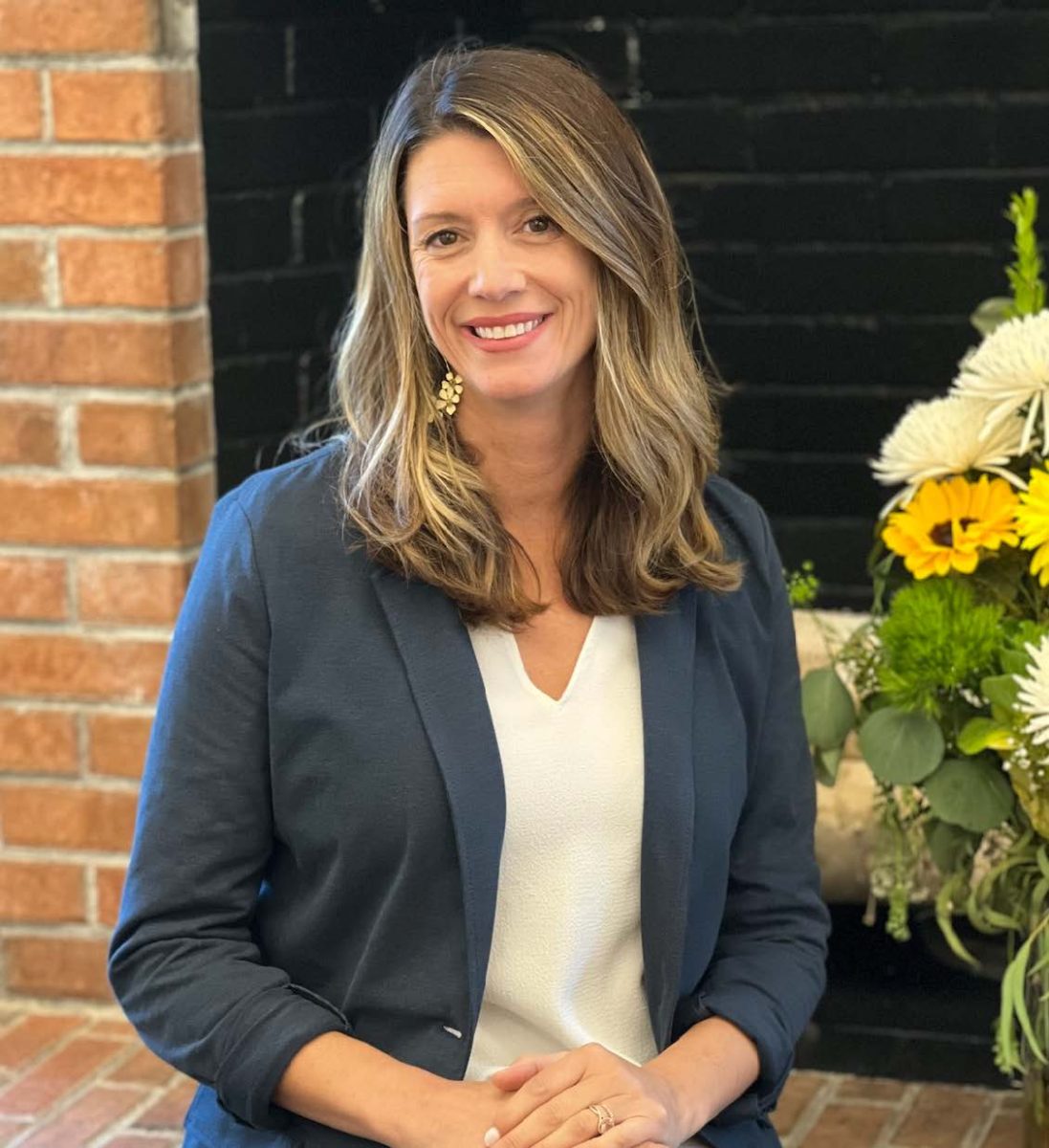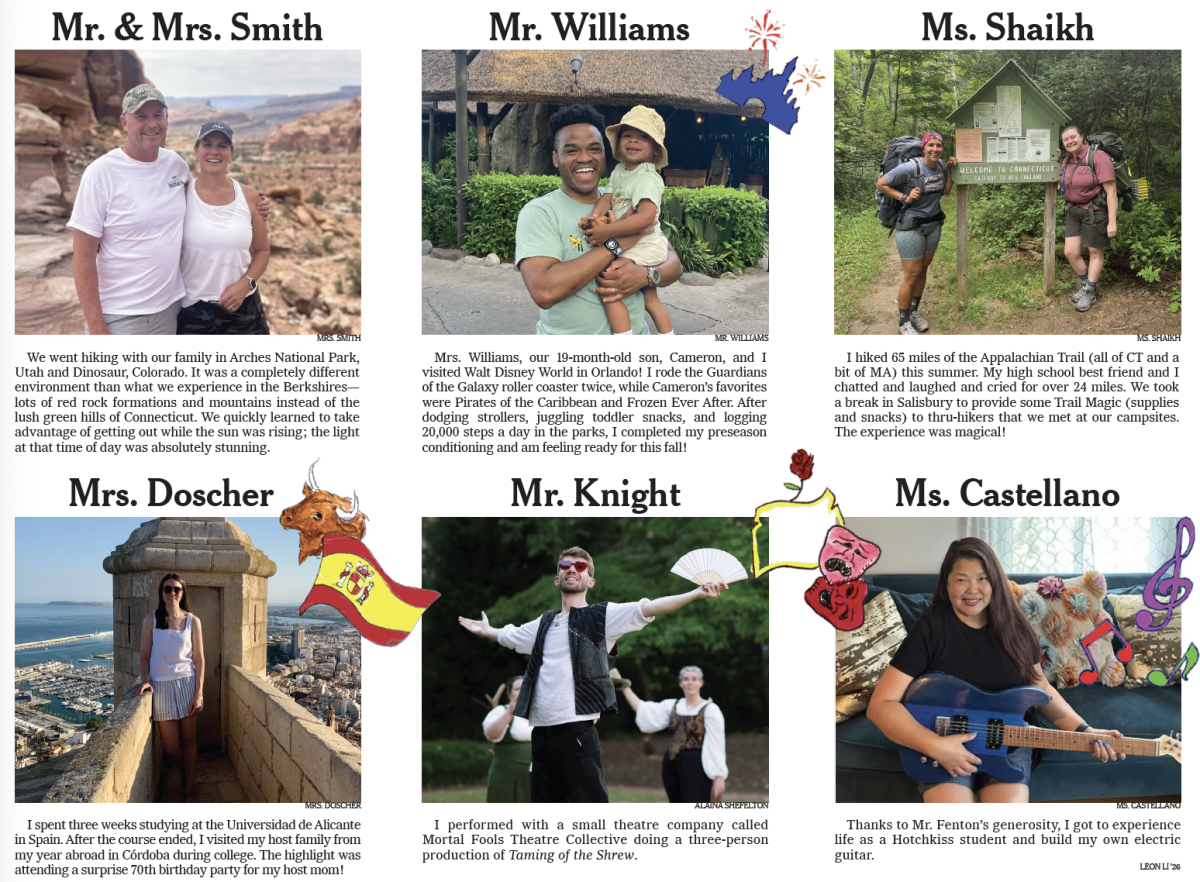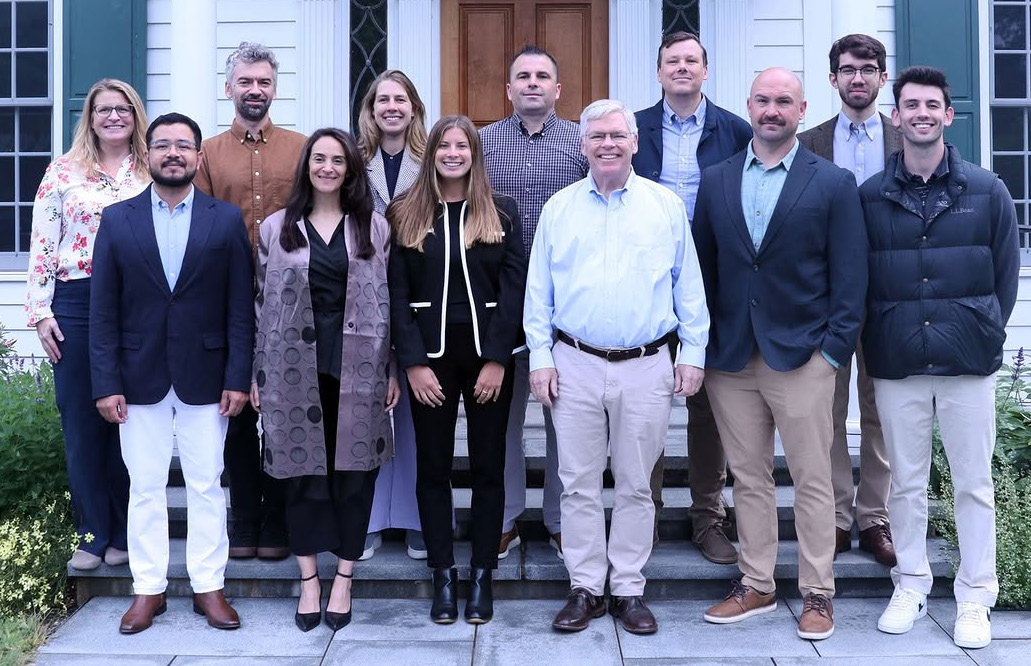Ms. Jean Hoffheimer ’10 teaches seventh grade English in the Farmington School District in Arkansas. She founded the Literacy Committee and initiated an arts integration curriculum at her school. Prior to her teaching career, Ms. Hoffheimer worked in media production, law, educational risk prevention, music, and marketing.
The Record spoke with Ms. Hoffheimer over Zoom to learn more about her work and how her time at the school prepared and influenced her.
Why did you decide to attend Hotchkiss?
As I got older, public schools were not fulfilling my academic needs. Some members of my dad’s side of the family had gone to boarding school, and we decided Hotchkiss was the best fit for me.
Could you tell me about some of your most memorable classes at the school and how they affected you?
One of my favorite classes was my Seniors Honors English class with Mr. Charlie Frankenbach. He really broadened my literary horizons with his unique curriculum through readings that were not just in the standard American literary canon. Mr. Frankenbach introduced me to literature that developed my mind and challenged us to think about privilege and diversity in our place in the world.
Another memorable course I took was a senior-year class on ethics with Mr. Lou Pressman, [former chaplain and instructor in philosophy and religion.] It was a very small group, and we talked about all the modern applications of ethics and morality—in eminent domain, taxes, immigration, and more.
Mr. Pressman’s syllabus and teaching provided part of the blueprint for how I view the role of educators and other public service providers in society, both in a theoretical context as well as how my work concretely contributes to social culture and community. In his course, I started thinking about the world in ways that directly led to my career in public service.
Once I started teaching, I realized that the learning experiences I had at Hotchkiss had affected the way I looked at the world, and that was something I wanted to replicate with my students.
A lot of the books chosen traditionally for students are kind of stale and don’t make you think much about the world. A lot of the text choices I’ve made with my syllabi have been directly influenced by my experiences with Hotchkiss teachers. Hotchkiss taught me the massive impact of a great teacher.
What motivated you to become a teacher after working in a variety of different fields?
I always knew that I wanted to pursue a career in public service. I was preparing to attend law school, with the goal of eventually pursuing public defense or immigration law. But I felt like I had such a huge privilege to go to school in New England for eight years, so I decided I would return to Mississippi and help improve the education system for other students.
I didn’t know I wanted to become a teacher until I was already one. I thought it would be a fun job to do between undergraduate school and law school. When my two years of teaching in Mississippi ended, I moved to Texas, and I kept working in Title I schools. The more time I spent teaching, the more I realized that public education—the most important thing for the future of our country—is in crisis right now. I couldn’t imagine a more important field to be working in.
For most Hotchkiss students, the ultimate goal is to get into a great college. In public education, college is in no way the end goal for every student. Very few of the students I taught in Mississippi went on to college, and those who did enrolled in community college. College was certainly not the goal for many from the lower-income communities.
I think back to the way I felt sitting in the class of Mr. Frankenbach or Mr. Pressman. I try to design my curriculum so that it helps expand the worldview of my students and not just focus on college preparation.
Could you tell us a bit more about your current role in the Farmington school district in Arkansas?
I am currently a seventh-grade English instructor, teaching 149 students of diverse abilities. I have students still learning how to write their names, some who are illiterate, and two students who are reading at a 12th-grade level. I offer special-ed classes for students in need and work with an arts integration curriculum in the special education populations—this is my specialty and something I’ve been awarded fellowships and recognition for in recent years.
Also, I am currently mentoring two first-year teachers on my campus. I’m responsible for checking in with them and making sure that they understand how to create and utilize the curriculum. I mentor two student teachers as well. One is currently a student at the University of Arkansas, and another is still a high school student.
Could you walk us through a typical day for you?
I get up at seven in the morning and drive to work. I check in with one of my interns, and we start the day. Our first class is our inclusion class, the low-level reading class with students who are still learning the English language.
Then we have our planning period, when I meet with other teachers in the school whom I’m mentoring and discuss the curriculum and test scores with my department. After teaching some more, I advise a group of 24 ninth graders about grades, classes, and individual improvement plans.
After school, I stay on campus and make lesson plans and work on grading for the next day.
What are some of your favorite parts of your current job?
I really enjoy it when my students excel. Last year, my students had the highest improvement rate in the whole district based on test scores. That felt like the best day of the whole year.
I also love when students come to me and say, “I really liked that book” or “I really liked that poem.” In a very rural school in Arkansas, most kids get little exposure to reading for pleasure. So, when students say, “Can we please read some more Edgar Allan Poe?” it’s an amazing feeling, as a year ago they probably didn’t know who he was.
This next generation is going to define the future of the country and the world. When I see them at their most genuine, I’m very optimistic. I think that they have good hearts, ask the right questions, are honest, and they are, understandably, suspicious and inquisitive about things that they don’t know about. They’ve got a lot to offer, and I’m excited to see what they do.
What are some of your hobbies?
I have gotten into bird watching; it’s something that just hits you when you turn 30. I also love to bake and go biking. I used to play a lot of violin, and I thank Hotchkiss for that. I played in the orchestra for all four years, playing both the violin and the viola.

